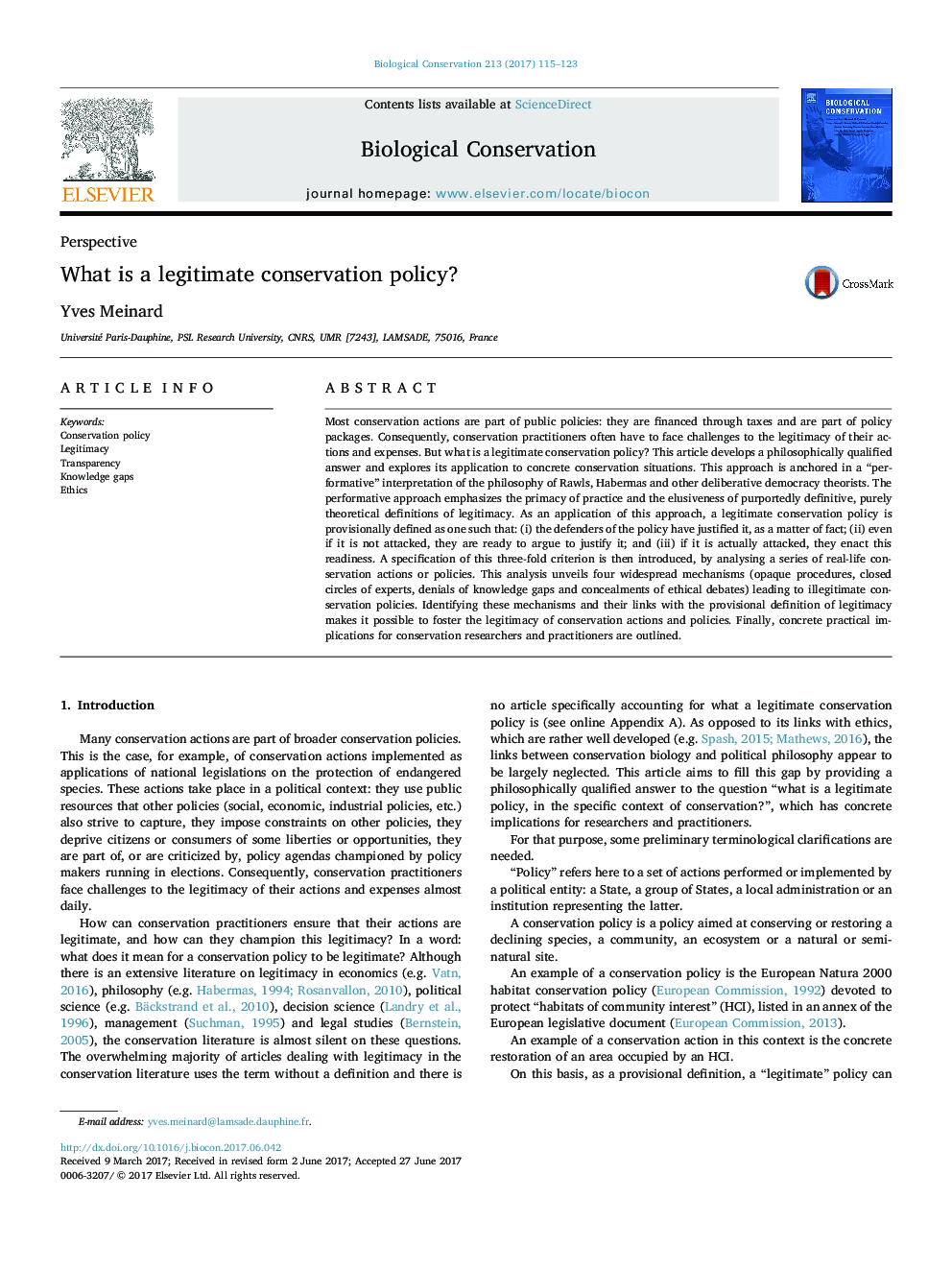| Article ID | Journal | Published Year | Pages | File Type |
|---|---|---|---|---|
| 5742976 | Biological Conservation | 2017 | 9 Pages |
Abstract
Most conservation actions are part of public policies: they are financed through taxes and are part of policy packages. Consequently, conservation practitioners often have to face challenges to the legitimacy of their actions and expenses. But what is a legitimate conservation policy? This article develops a philosophically qualified answer and explores its application to concrete conservation situations. This approach is anchored in a “performative” interpretation of the philosophy of Rawls, Habermas and other deliberative democracy theorists. The performative approach emphasizes the primacy of practice and the elusiveness of purportedly definitive, purely theoretical definitions of legitimacy. As an application of this approach, a legitimate conservation policy is provisionally defined as one such that: (i) the defenders of the policy have justified it, as a matter of fact; (ii) even if it is not attacked, they are ready to argue to justify it; and (iii) if it is actually attacked, they enact this readiness. A specification of this three-fold criterion is then introduced, by analysing a series of real-life conservation actions or policies. This analysis unveils four widespread mechanisms (opaque procedures, closed circles of experts, denials of knowledge gaps and concealments of ethical debates) leading to illegitimate conservation policies. Identifying these mechanisms and their links with the provisional definition of legitimacy makes it possible to foster the legitimacy of conservation actions and policies. Finally, concrete practical implications for conservation researchers and practitioners are outlined.
Related Topics
Life Sciences
Agricultural and Biological Sciences
Ecology, Evolution, Behavior and Systematics
Authors
Yves Meinard,
